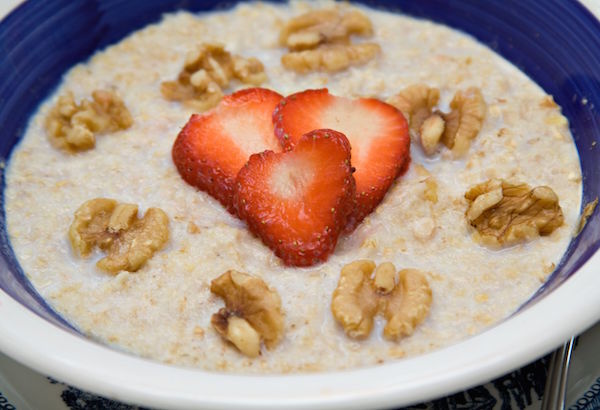
THURSDAY, March 18 (HealthDay News) — The latest report from a massive trial to determine the health value of a low-fat diet comes to the unexciting conclusion that it is probably not bad for your heart.
Such an eating regimen had almost no effect on cholesterol levels. The finding appears in the April issue of the American Journal of Clinical Nutrition and was based on a portion of the Women’s Health Initiative (WHI) that gave some women intensive training and education on eating a low-fat diet and compared their health with women who didn’t change their eating habits.
The best that study author Barbara V. Howard, a professor of medicine at Georgetown University, could say for a low-fat diet was that it didn’t make things worse as far as affecting blood levels of good fats, such as HDL cholesterol, and bad fats, such as triglycerides.
“This diet did not raise triglycerides and didn’t lower HDL cholesterol,” Howard said. “It didn’t do any of the adverse things that high-fat people have claimed.”
In addition, women who lowered intake of specific kinds of fats — saturated fats and trans fatty acids — did have lower a lower rate of heart disease, she said.
And eating a low-fat diet might make it easier to lose weight, which is important because of the current American epidemic of obesity, Howard noted.
“If you start out eating too many calories and you cut fat, that automatically makes you eat a higher-carbohydrate diet,” she said. “If a person wants to reduce weight and is comfortable with cutting fat, that is a good strategy.”
Begun in 1991, the WHI was initially designed to determine the effect of a low-fat diet on cancer risk, with heart disease reduction a secondary goal. In 2006, the first results showed there was no effect on cancer risk.
In the trial, women who followed the low-fat regimen consumed 29.3 percent of their calories as fat, compared with 37 percent of those in the comparison group. But the low-fat diet did not affect blood triglyceride, HDL cholesterol or other lipoprotein levels.
“The main message here is that if you want to lose weight and cut fat to do it, you do not have adverse effects,” Howard said. Though the choice of diet can be influenced by many factors, including cultural background, “in my opinion, if you have to cut calories to lose weight, it is easier to cut fat because fat is denser,” she said.
So a recommended diet would “focus on vegetables, grains, healthy products that are not calorie-dense and that can fill you up more easily,” she said.
But Howard’s advice to switch to a high-carbohydrate diet is disputed by Jeff. S. Volek, an associate professor of kinesiology at the University of Connecticut and an expert in the field.
The study “does hint at the fact that people with insulin resistance, as shown by high triglycerides or being diabetic, tend to do worse when carbohydrates are increased,” Volek said. “Decreasing carbohydrates represents the preferred approach for people with insulin resistance.”
In the end, Volek said, “it’s difficult to make any firm conclusions from a study like Women’s Health Initiative because, after years of being prescribed a diet, very few people are actually on the diet.” Self-reports of food intake “are notoriously inaccurate,” he said, and “even though the number of subjects is large, the noise is even greater so that these studies contribute very little to actual knowledge on the interaction of diet and health.”
“There is a distinct difference,” he pointed out, “in studying what happens when you assign a diet vs. what happens when people actually follow a diet.”
More information
The U.S. National Heart, Lung, and Blood Institute offers help in planning a heart-healthy diet.

